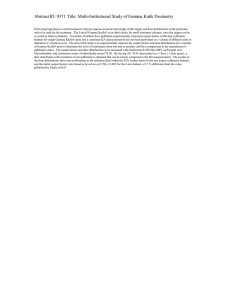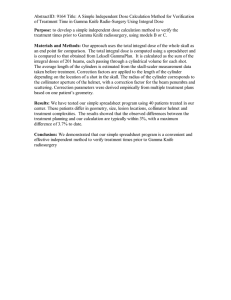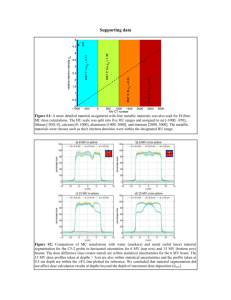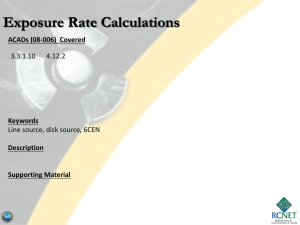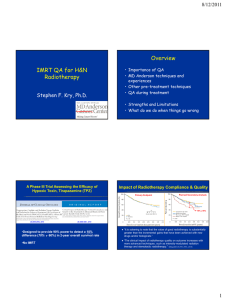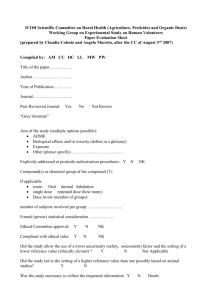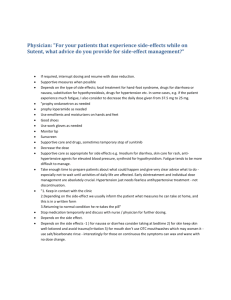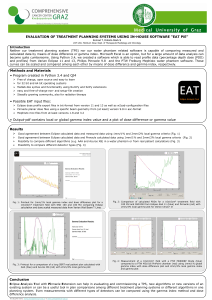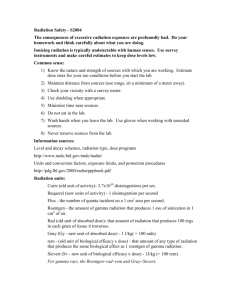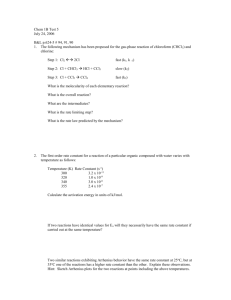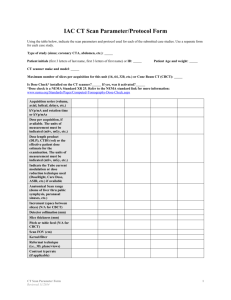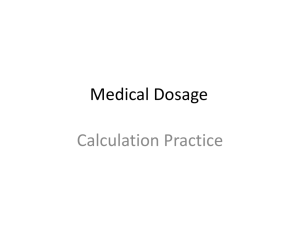Chapter 9 Problems - RADAR - the RAdiation Dose Assessment
advertisement
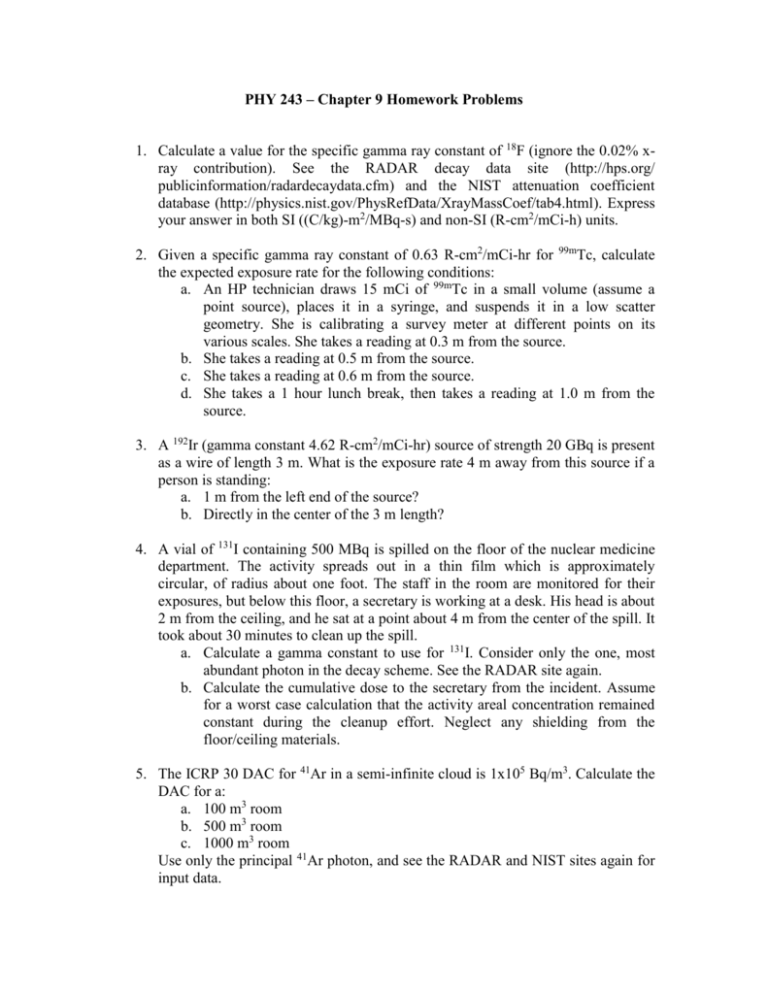
PHY 243 – Chapter 9 Homework Problems 1. Calculate a value for the specific gamma ray constant of 18F (ignore the 0.02% xray contribution). See the RADAR decay data site (http://hps.org/ publicinformation/radardecaydata.cfm) and the NIST attenuation coefficient database (http://physics.nist.gov/PhysRefData/XrayMassCoef/tab4.html). Express your answer in both SI ((C/kg)-m2/MBq-s) and non-SI (R-cm2/mCi-h) units. 2. Given a specific gamma ray constant of 0.63 R-cm2/mCi-hr for 99mTc, calculate the expected exposure rate for the following conditions: a. An HP technician draws 15 mCi of 99mTc in a small volume (assume a point source), places it in a syringe, and suspends it in a low scatter geometry. She is calibrating a survey meter at different points on its various scales. She takes a reading at 0.3 m from the source. b. She takes a reading at 0.5 m from the source. c. She takes a reading at 0.6 m from the source. d. She takes a 1 hour lunch break, then takes a reading at 1.0 m from the source. 3. A 192Ir (gamma constant 4.62 R-cm2/mCi-hr) source of strength 20 GBq is present as a wire of length 3 m. What is the exposure rate 4 m away from this source if a person is standing: a. 1 m from the left end of the source? b. Directly in the center of the 3 m length? 4. A vial of 131I containing 500 MBq is spilled on the floor of the nuclear medicine department. The activity spreads out in a thin film which is approximately circular, of radius about one foot. The staff in the room are monitored for their exposures, but below this floor, a secretary is working at a desk. His head is about 2 m from the ceiling, and he sat at a point about 4 m from the center of the spill. It took about 30 minutes to clean up the spill. a. Calculate a gamma constant to use for 131I. Consider only the one, most abundant photon in the decay scheme. See the RADAR site again. b. Calculate the cumulative dose to the secretary from the incident. Assume for a worst case calculation that the activity areal concentration remained constant during the cleanup effort. Neglect any shielding from the floor/ceiling materials. 5. The ICRP 30 DAC for 41Ar in a semi-infinite cloud is 1x105 Bq/m3. Calculate the DAC for a: a. 100 m3 room b. 500 m3 room c. 1000 m3 room Use only the principal 41Ar photon, and see the RADAR and NIST sites again for input data. 6. A nuclear medicine technologist spills some 18F on her skin. The best estimate is that about 30 MBq were released, and formed a radioactive patch on the surface of her skin of about 1 cm radius. a. Using the table below, calculate the initial dose rate to her skin just beneath the dead layer. Assume that the only significant dose is from the beta (positron) radiation. Units in the table are mGy-cm2/MBq-h. b. Attempts are made to remove the activity, but the removal is not successful until 30 minutes after the contamination occurred. Calculate the cumulative dose to her skin during the 30 minutes, assuming that the activity stayed on the skin surface (did not soak into the skin). Note that the activity level will not remain constant during that period! c. Does this dose represent a violation of any 10CFR20 limit?
